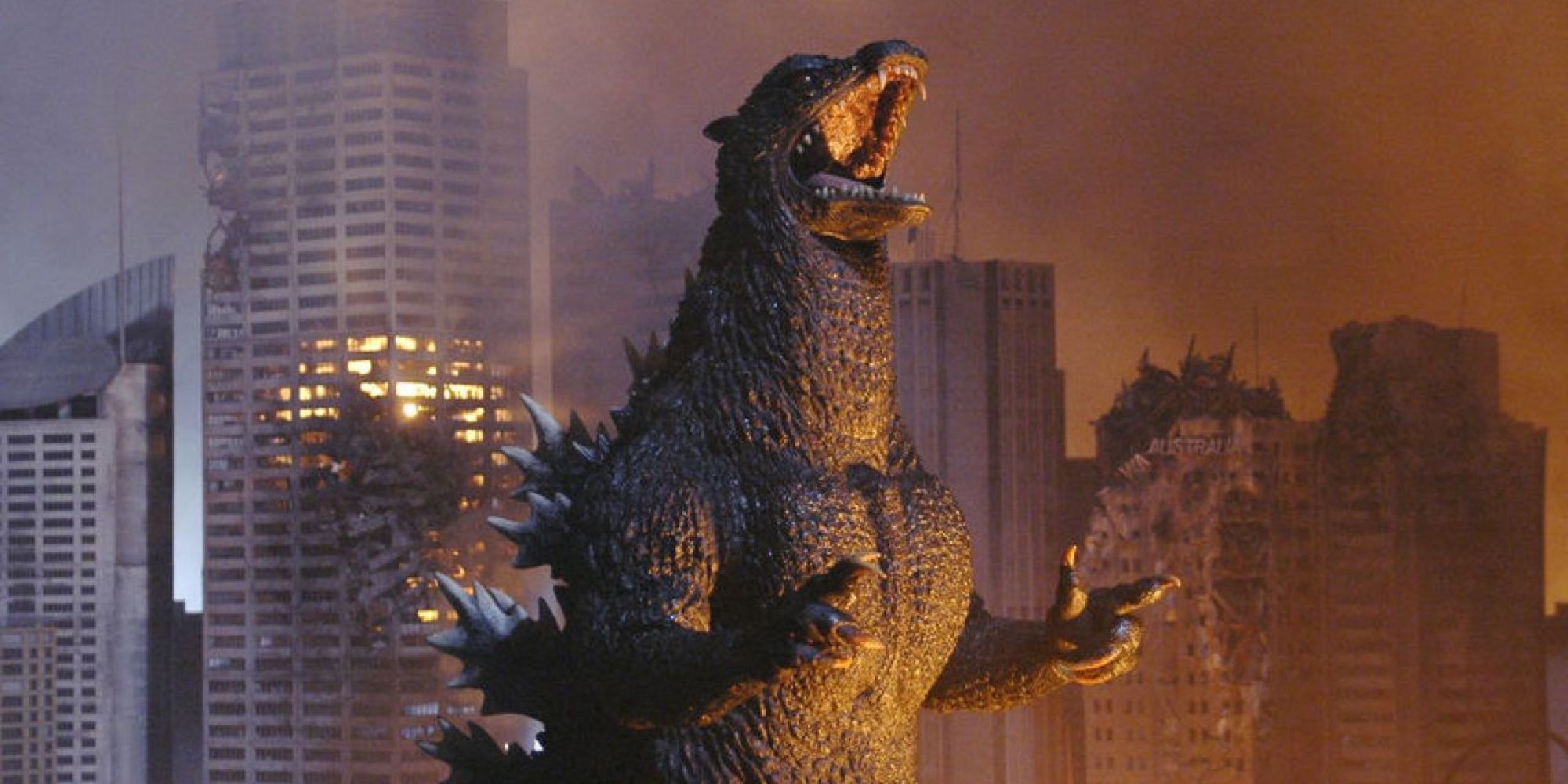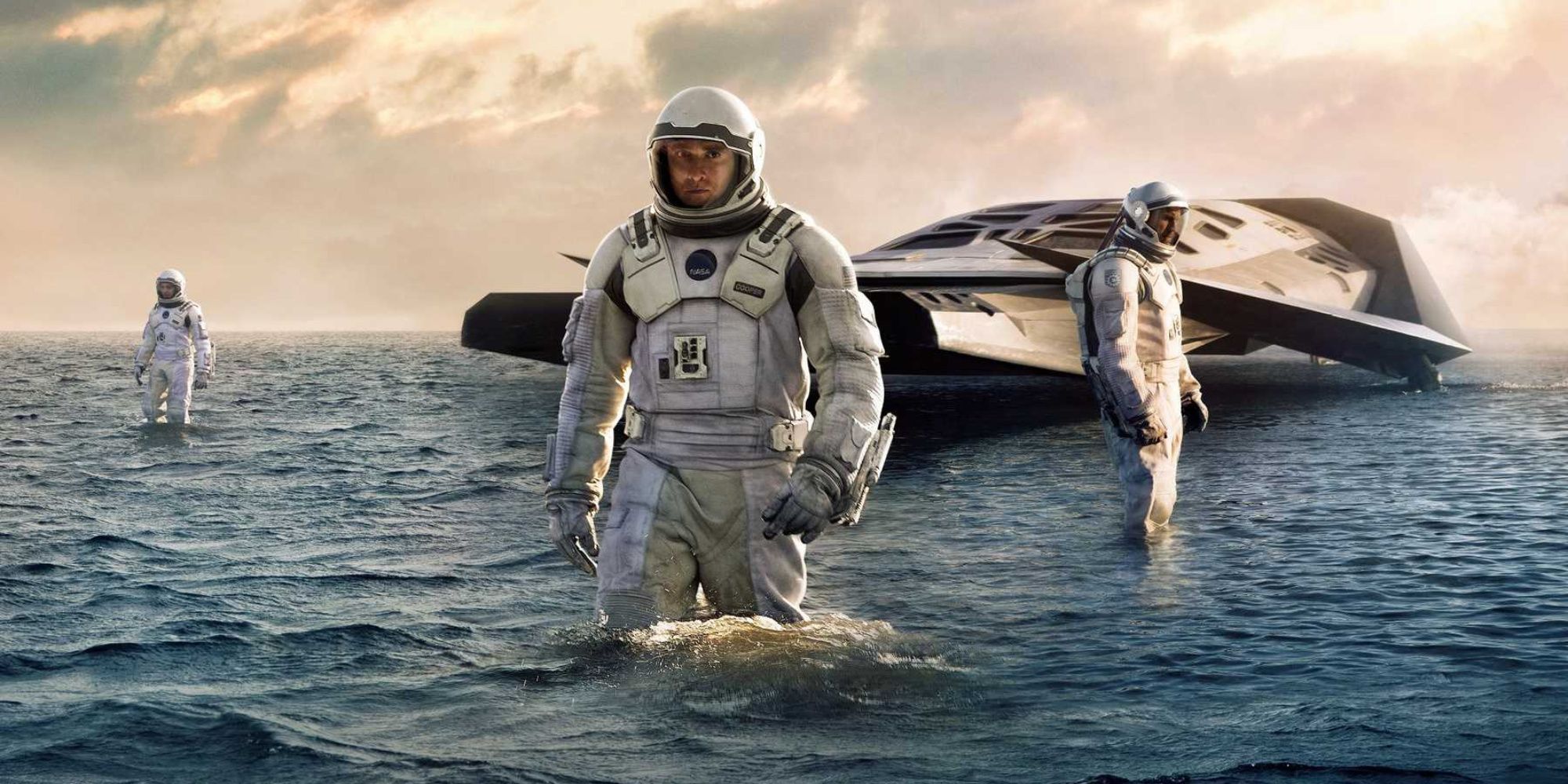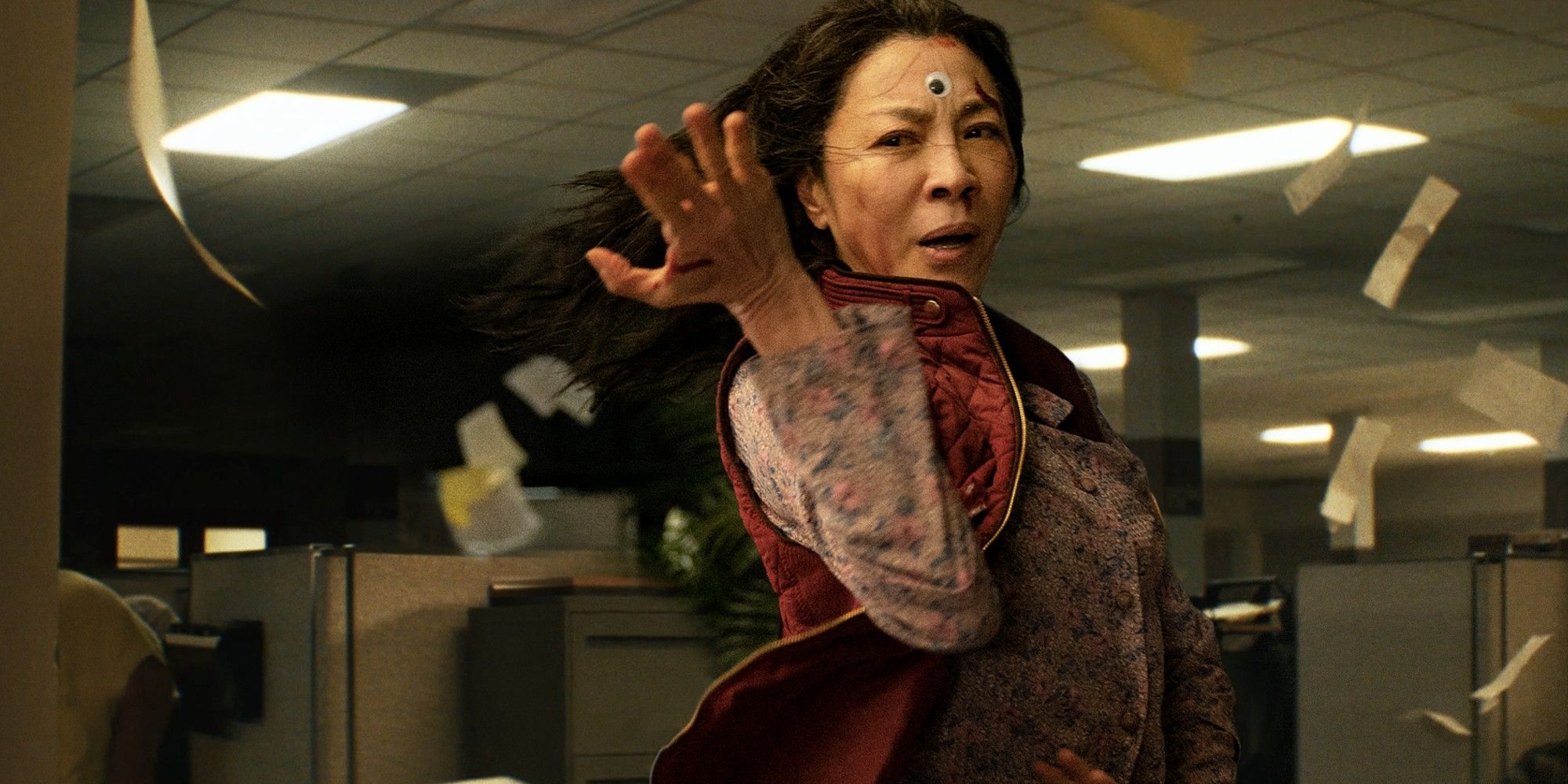Read update
- With highly-anticipated releases like Avatar: The Way of Water (December 16) and Dune: Part Two (November 3, 2023), it's clear that there's enduring interest in sci-fi fantasy movies. Fans who enjoy this perfect blend of genres will be glad to know there's no shortage of award-winning films to choose from.
Fire and ice, high and low, near and far, fantasy and science fiction. The following pairs might all appear to be opposites, but the last of those are not as incomparable as you might think. Yes, the fantasy genre generally depicts stories that take place in some otherworldly location that feels like the past, whilst the science-fiction genre generally looks into technological futures, but individual films themselves don't always have to be one or the other.
In their own ways, the following eight films demonstrate how these two worlds can collide within a single film whilst still feeling coherent. Some may emphasize fantasy over science fiction, whilst some might prioritize science fiction tropes and aesthetics over fantasy ones, yet all manage to marry these two unlikely genres together in consistently interesting ways.
Updated on November 14th, 2022, by Hannah Saab:
With highly-anticipated releases like Avatar: The Way of Water (December 16) and Dune: Part Two (November 3, 2023), it's clear that there's enduring interest in sci-fi fantasy movies. Fans who enjoy this perfect blend of genres will be glad to know there's no shortage of award-winning films to choose from.
'Dune' (2021)
Dune is typically considered among science fiction movies, and it mostly is, but there are fantastical elements to it for sure. Supporting the idea it's science-fiction, though, is the fact it is set in the future, has spaceships and space travel, and features different advanced races all at war on an interplanetary scale.
But there is a certain amount of mysticism to some things within the world of Dune, some of which are only briefly explored in 2021's film (hopefully its slightly delayed sequel Dune 2 builds on the first film's mysteries satisfyingly). There are giant, somewhat fantastical sandworm creatures, psychic powers, and the mysterious Spice substance that gives people unusual abilities. In addition, there's a lot less technology when it comes to combat than you'd expect in a science-fiction film, with much of the combat being hand-to-hand, with blades, which gives some action a more old-fashioned, fantasy feel.
'Star Wars' (1977)
Like Dune, Star Wars is at first glance science fiction. The original Dune novel came out 12 years before the release of the first Star Wars, and so was a likely influence on George Lucas' iconic space opera. But like that other iconic piece of science-fiction that came before it, there's more fantasy to be found in Star Wars than initially meets the eye.
It might have laser blasters and space travel and feel very futuristic with much of its technology, but as the text right at the start of the film states, this is happening "A long time ago, in a galaxy far, far away." It's therefore, thanks to that text, not possible to define as futuristic, like most science-fiction. And while subsequent Star Wars films have been mixed on whether the Force can be explained with science or not, in the original Star Wars, it is very much a mystical, borderline magical phenomenon. So too is the idea of Jedis themselves, who feel like knights in a work of fantasy, and generally fight with their own unique types of swords, too.
'Avengers: Infinity War' (2018)
Before Avengers: Infinity War, the movies in the Marvel Cinematic Universe more or less fell into science-fiction or fantasy. For example, the Guardians of the Galaxy movies and Ant-Man movies would be considered science-fiction, while the Thor films could best be described as fantasy.
But in being a team-up of unprecedented size that brought together almost all the characters established within the MCU's first 10 years, Avengers: Infinity War couldn't help but bring together various genres, too. Now, Iron-Man had to use his science-fiction technology alongside Doctor Strange using his magical power, all in the name of fighting Thanos. That blending of characters, tones, and genres was one of the things that made Infinity War so thrilling and unpredictable.
'Avatar' (2009)
James Cameron's smash-hit 2009 film Avatar broke box office records whilst also shattering the binary between science-fiction and fantasy. This is thanks to the story itself, where in the future, humanity uses advanced technology to explore new areas of the galaxy, one place being the moon of Pandora, which is a fantastical, idyllic world whose inhabitants are more in tune with nature than technology.
This sets off the main conflict of the film, inevitably, being something of science-fiction vs fantasy, in a way, with each side personified by each genre's conventions. Whether this is explored further in the film's upcoming sequel, Avatar 2 remains to be seen.
'Pacific Rim' (2013)
Avatar's science-fiction versus fantasy narrative can be seen in Guillermo Del Toro's Pacific Rim, too, but there's a different spin on it this time. Whilst the Na'vi on their fantastical world in Avatar were the film's heroes, and the tech-heavy humans were (more or less) a villainous force, in Pacific Rim, the heroes and villains are reversed.
When inexplicable, monstrously-sized, terrifying fantastical creatures begin attacking Earth, humanity fights back with technology: namely, building huge robots that can match the monsters in combat. It's technology versus the fantastical again, but unlike Avatar, audiences will find themselves barracking for those fighting with technology in Pacific Rim.
'A Trip to the Moon' (1902)
A Trip to the Moon is a ground-breaking short film from the cinema's early years. It depicts a mission to the moon and then back again, as well as the astronaut's strange encounter with the living beings who happen to live on the moon.
From the basic plot summary, it's clear that this isn't traditional science fiction. Space travel is of course something explored in the science-fiction genre, and the idea of traveling to the moon seemed far off into the future back in 1902. The moon in this short film has an actual face, there are aliens on it, and also the astronauts are launched into space via a cannon... so it's definitely got some strong fantastical elements, too.
'The City of Lost Children' (1995)
The City of Lost Children is a particularly dark, surreal blend of science-fiction and fantasy. Its plot involves a villainous scientist who kidnaps children and uses his bizarre inventions to steal their dreams, hoping it will stop him from aging.
It's all a bit hard to explain, but the antagonist being a scientist and many of the film's unusual sets and aesthetics make it feel fairly science-fiction. However, it's the kind of science-fiction you might see in a nightmare, so it's all got a very strange, surreal feel to it, meaning it doesn't feel right to call The City of Lost Children "just" a science-fiction film and leaving it at that. If you can imagine David Lynch trying to direct a fairytale and a science-fiction film at the same time, you'll have at least some idea of how this strange movie feels to watch.
'Godzilla: Final Wars' (2004)
Godzilla: Final Wars was a film made to commemorate 50 years of Godzilla movies. In the process, it had a go at being the biggest and wildest film in the entire series, and was a success in that regard. Almost every monster Godzilla battled in his first 50 years of movies makes a reappearance here, and the human storyline has far more action and craziness going on than normal, too.
Because some of Godzilla's foes are science-fiction based (be they alien creatures or mechanical) and some are fantasy based (most obviously the mythical Mothra, who's summoned by magic), Godzilla: Final Wars can't help but be a mash-up of genres because of how much is packed into it. On top of being a science-fiction and fantasy movie, it's also an action movie, an over-the-top melodrama, a (probably intentional) comedy, and an adventure movie, because Godzilla himself travels around the world, just beating various monsters up, rather than the threat coming to him like usual. It's all a bit of a mess, but it's an absolutely glorious and ridiculously fun mess at least.
'Interstellar' (2014)
Christopher Nolan's Interstellar is a renowned epic sci-fi film that depicts a future where the earth has been ravaged by blight. Ex-NASA pilot Cooper gets another shot at space travel when he's tasked with leading a team to investigate what's on the other side of a mysterious wormhole. Their mission and what they find determine the fate of humanity.
The movie has won numerous accolades and is known for its scientific accuracy. Thanks to advice from actual scientists (with theoretical physicist Kip Thorne serving as a consultant and executive producer), it managed to set a new standard for the portrayal of scientific concepts on the big screen. That said, its twist ending has a fantasy element that re-frames the whole movie, and has been the source of major criticism for the film. Fans who love it would agree that its fantastical shocker is a huge part of what makes the movie so iconic.
'Everything Everywhere All at Once' (2022)
Everything Everywhere All at Once is a fantasy sci-fi masterpiece that thrusts viewers into Evelyn Wang's wild multiverse. The painfully average and stressed-out protagonist struggles to balance running her business, taking care of her failing marriage, and managing her messy relationship with her daughter. With so much on her plate, the last thing she needs is an alternate version of her husband appearing out of nowhere to tell her she's the only one who can save the world.
The A24 film is an awe-inspiring look at the multiverse with a profound philosophical message about optimistic nihilism. The science is there, but there are fantasy aspects in all the wacky elements and questions that are never answered. In the end, it's obvious that the answers don't matter, as viewers learn along with Evelyn that it's the small things in front of her that deserve her attention.

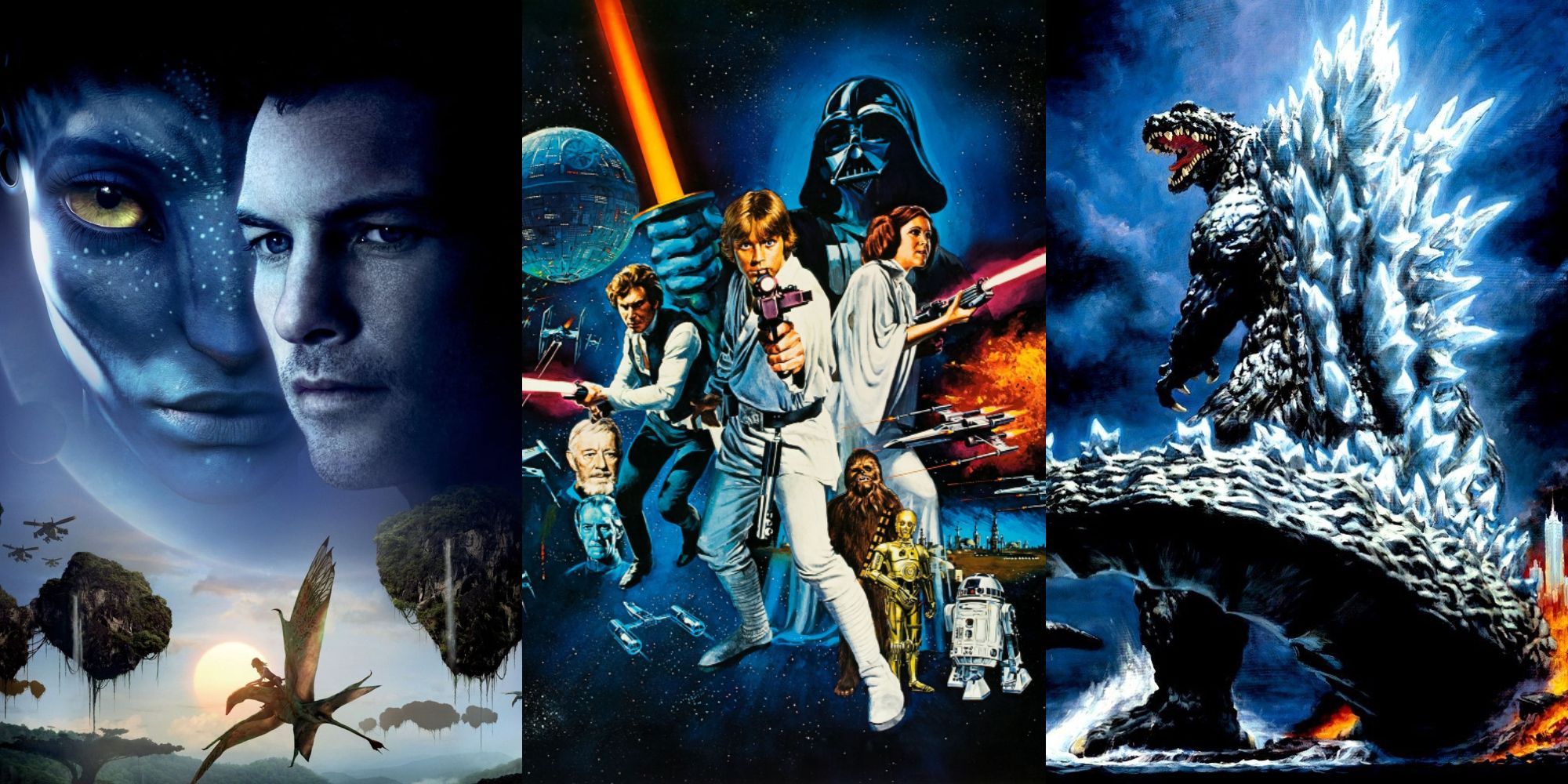

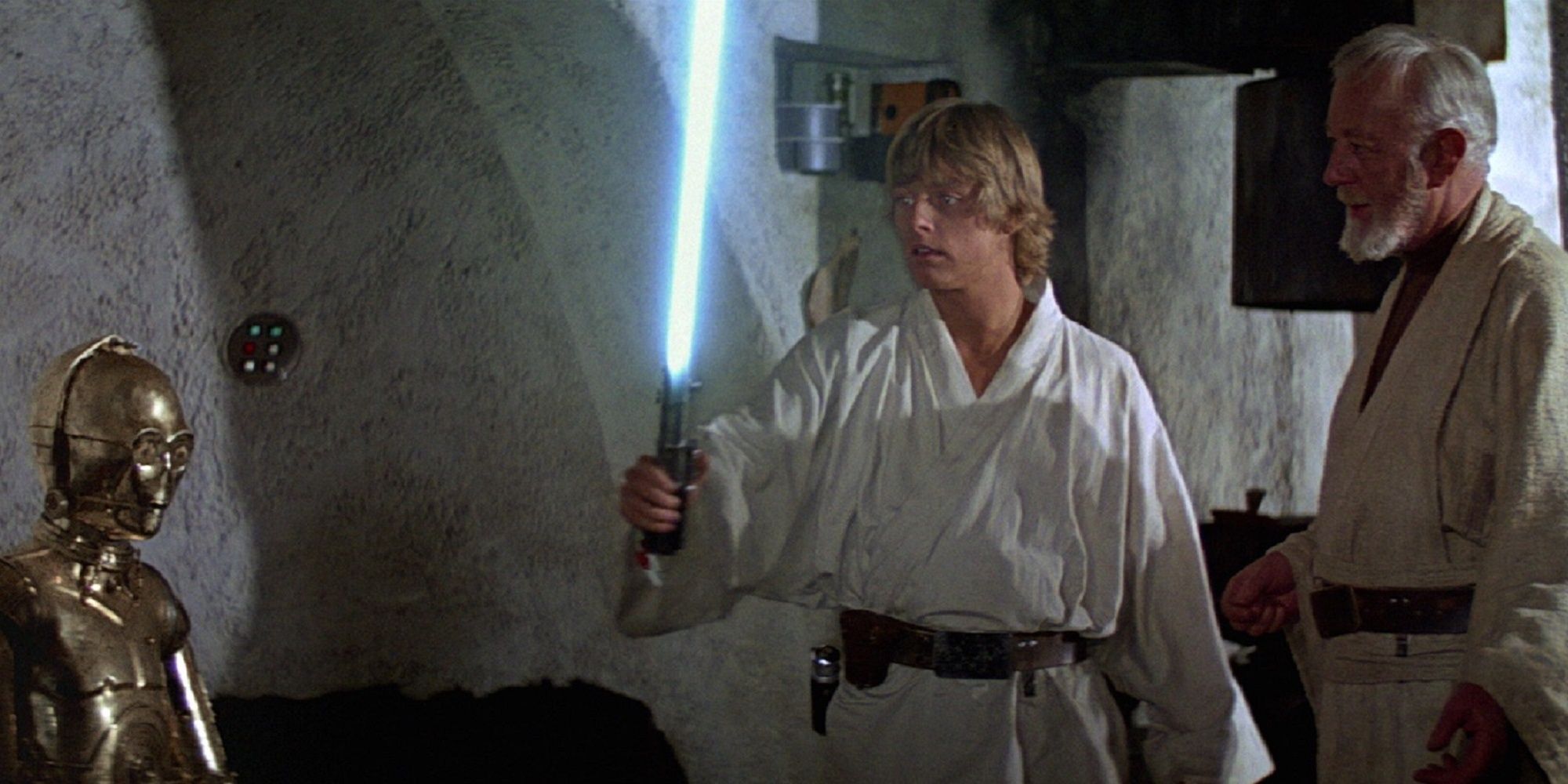
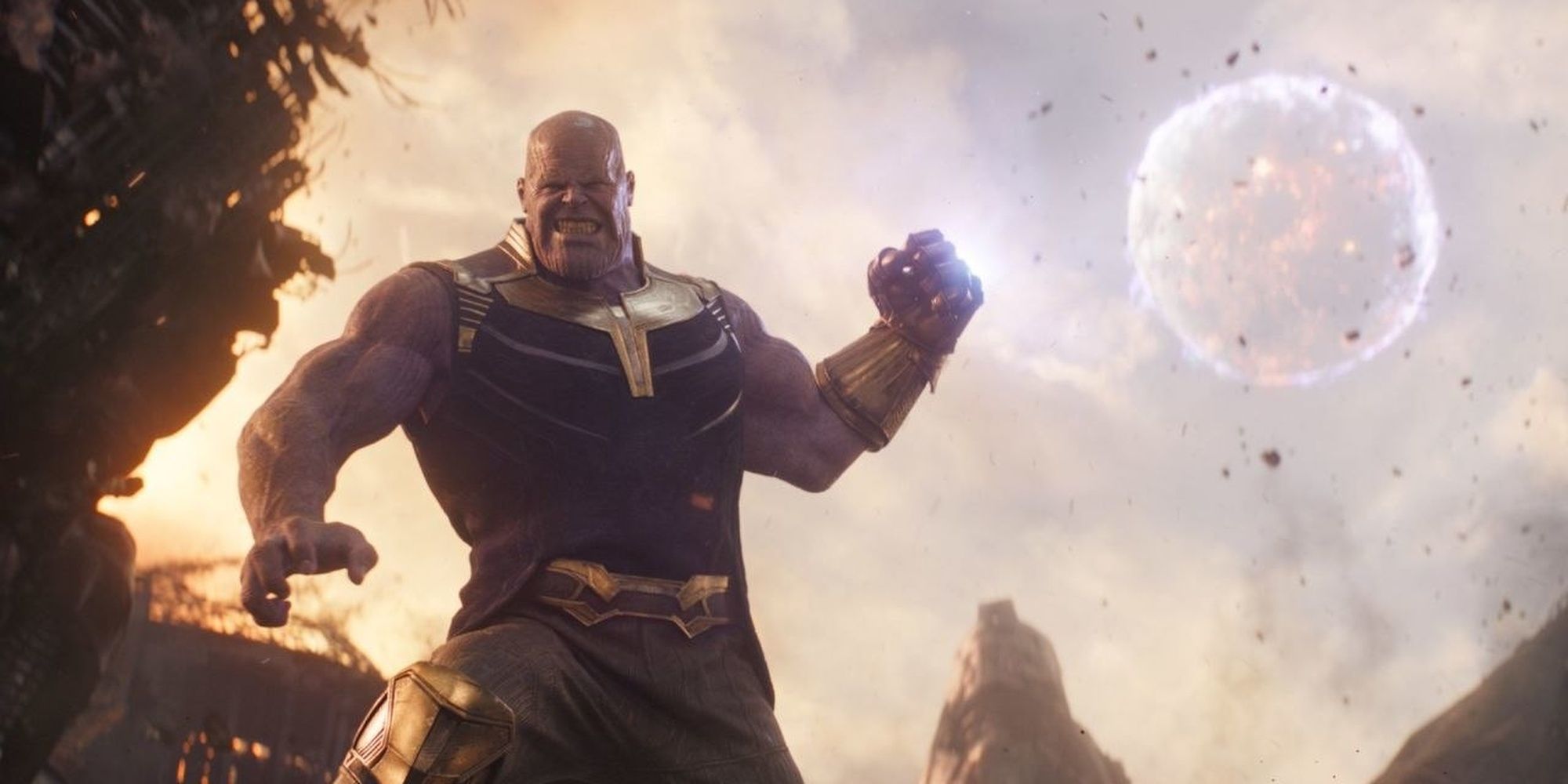
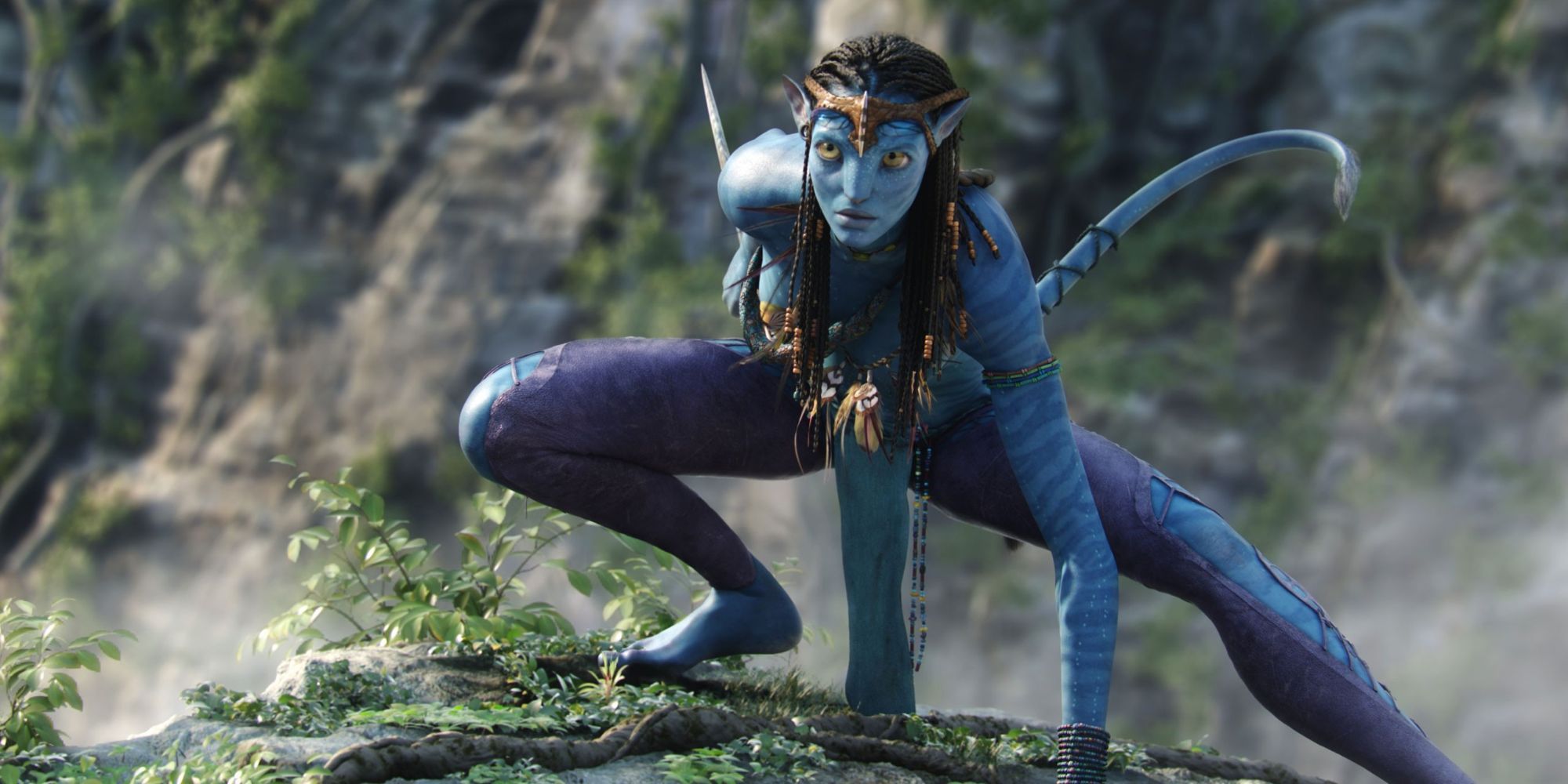
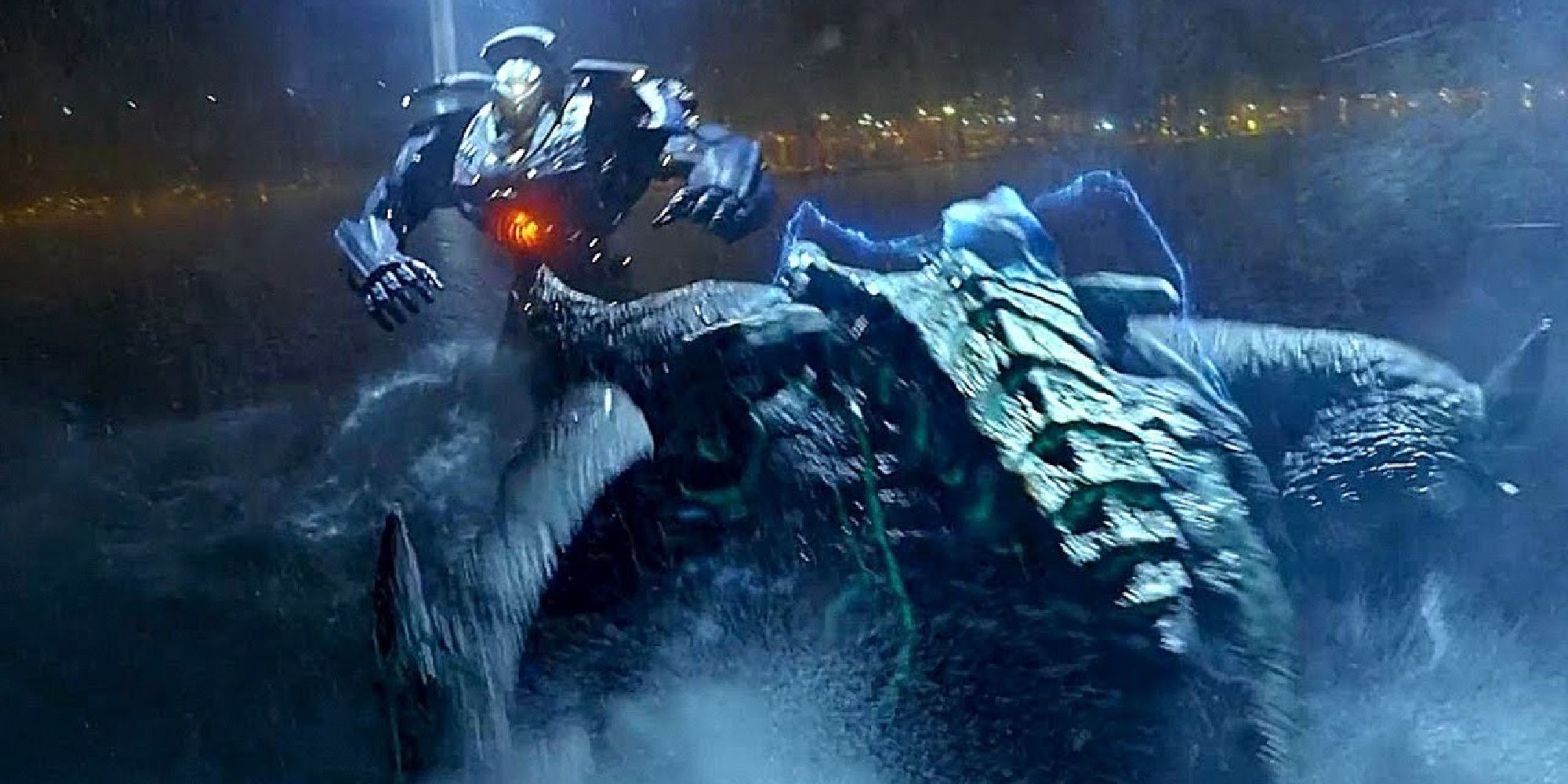
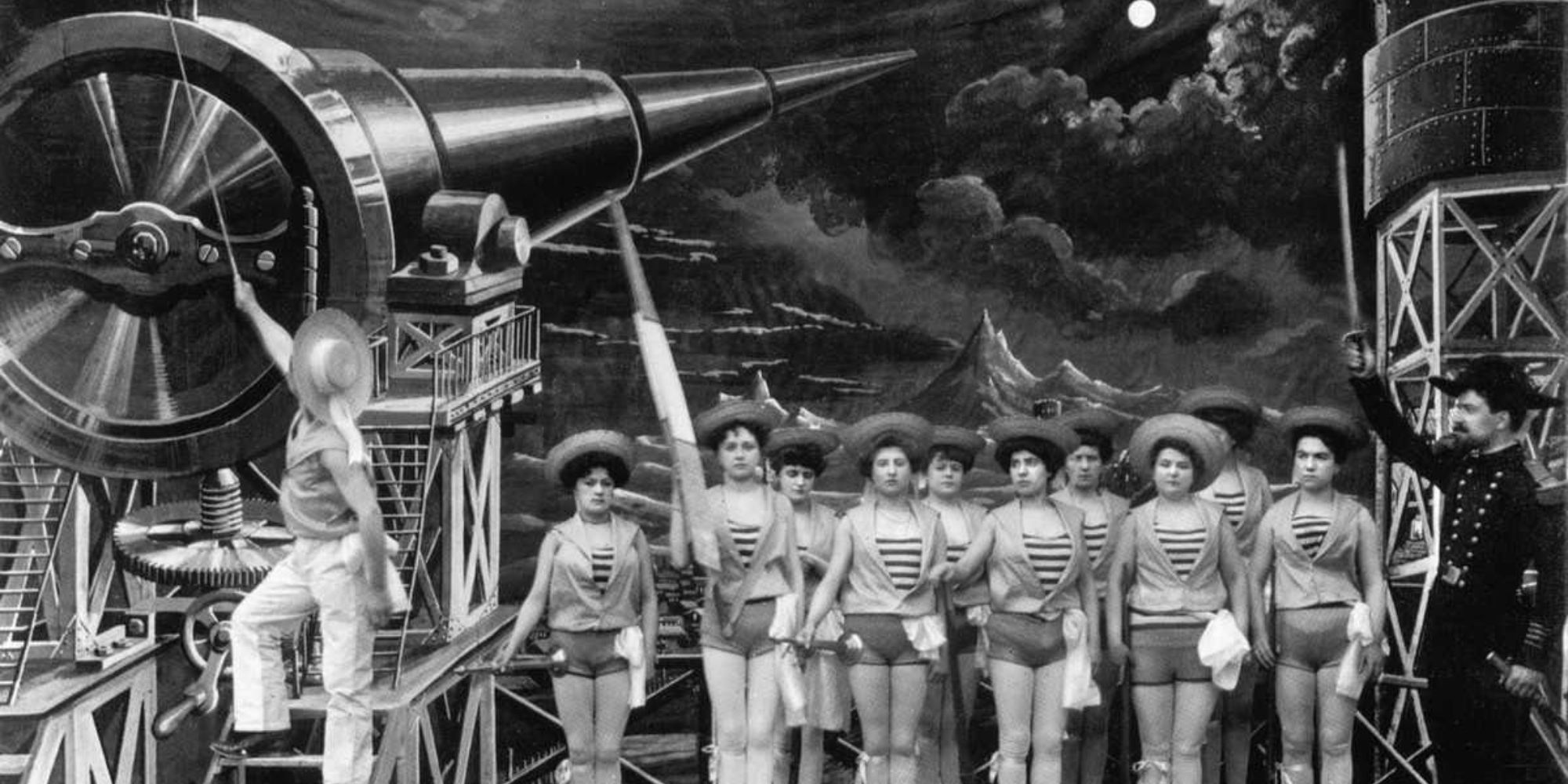
.jpg)
